POLAND’S INDEPENDENCE EFFORTS UNDER OCCUPATION DURING WORLD WAR

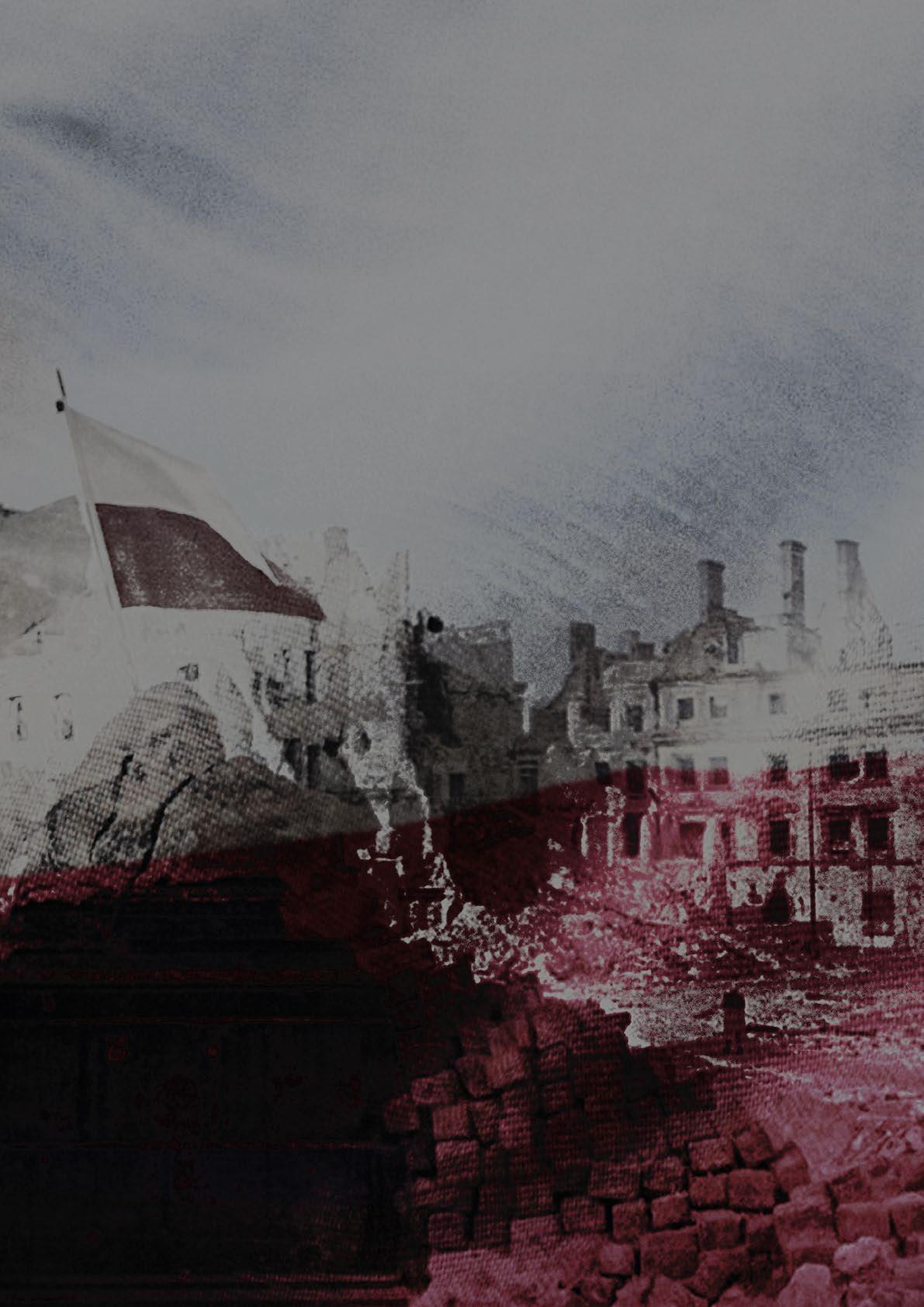 The project was co-financed by the Roman Dmowski and Ignacy Jan Paderewski Institute for the Heritage of National Thought within the framework of the Patriotic Fund-edition 2022 „Wolność po polsku”, managed by the Ministry of Culture and National Heritage.
The project was co-financed by the Roman Dmowski and Ignacy Jan Paderewski Institute for the Heritage of National Thought within the framework of the Patriotic Fund-edition 2022 „Wolność po polsku”, managed by the Ministry of Culture and National Heritage.
II
The freedom and sovereignty of the Polish state is the most important issue for every patriot. An analysis of the activities of the Polish Underground State and related organisations such as the Home Army deserves special attention from every viewer.
The Warsaw Institute Foundation, being aware of the importance and contribution of the aforementioned organisations to Poland’s independence and seeing the need to broaden the knowledge of the Polish nation’s striving for freedom, has created a production of expert reports on political and historical issues related to the subject discussed above and organised a series of online events (events), including lectures with experts, analysts, authorities and lectures combined with the opportunity for the public to ask questions.


The project was co-financed by the Roman Dmowski and Ignacy Jan Paderewski Institute for the Heritage of National Thought within the framework of the Patriotic Fund-edition 2022 „Wolność po polsku”, managed by the Ministry of Culture and National Heritage.

- 2 -
„Poland’s independence efforts under occupation during World War II”
Polish resistance to the Third Reich. Józef Beck - a symbol of Polish patriotism and national pride?
The following took part in the debate: Jan Hernik, editor-in-chief of the Warsaw Institute, Kacper Kita, publicist, expert of the Nowy Ład portal, and Adrian Kolano, expert of the Warsaw Institute.
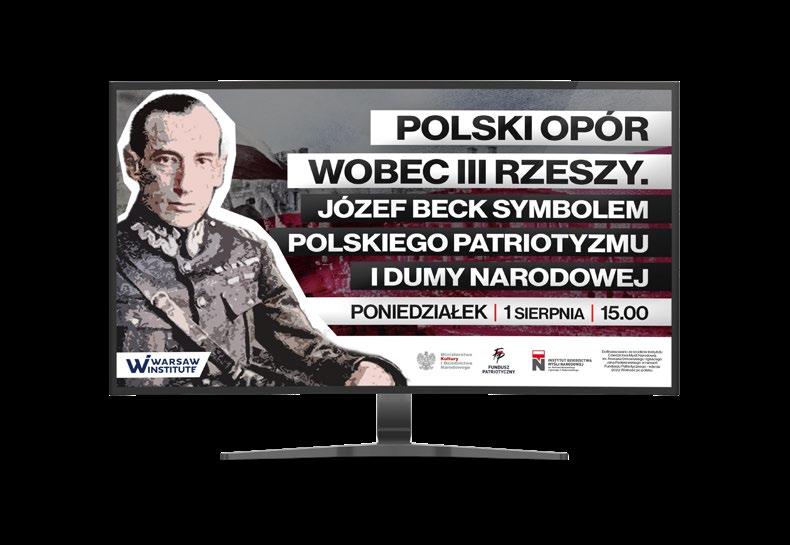
At the outset, the interviewees shared their opinions on the Warsaw Uprising. They debated whether the 63 days of the uprising can be descri bed as a glory or a defeat. The experts noted that regardless of these different opinions on the validity of the uprising, we should unanimously pay tribute to the heroes.

The next part of the debate concerned the figure of Józef Beck. From August to December 1930, he served as Deputy Prime Minister in Józef Piłsudski’s government, and in December of the same year he became Deputy Foreign Minister. From November 1932 to September 1939, he was Foreign Minister, re placing August Zaleski in that post. He also served in the Senate from 1935 to 1939.
Jan Hernik quoted the famous words uttered in the Sejm on 5 May 1939 by Józef Beck, „We in Poland do not know the concept of peace at any price. There is only one thing in the life of people, nations and states that is priceless. That thing is honour”. The participants referred to these words and evaluated the consequences of Beck’s speech. Józef Beck was not a person who did not make mistakes (including those concerning Czechoslovakia). In the course of the conversation, we can also find out whether the speech awakened the patriotic spirit dormant in the nation. The experts also addressed the information that Józef Beck was a German agent.
In the following part of the programme, we can hear what national pride is and how events from the time around the war as well as the war itself have influenced the state of national consciousness to day. Referring to historical events, every Pole should remember that this was a time of heroes, strength and honour.
The project was co-financed by the Roman Dmowski and Ignacy Jan Paderewski Institute for the Heritage of National Thought within the framework of the Patriotic Fund-edition 2022 „Wolność po polsku”, managed by the Ministry of Culture and National Heritage.

- 3 -
Link to debate: https://www.youtube.com/watch?v=SZt24EeO0ps
The debate was attended by Jan Hernik, edi tor-in-chief of the Warsaw Institute, Brunon Różycki, publicist and historical writer, and Dr Marcin Paluch, historian at the Air Force Academy in Dęblin.
What is the Polish Underground State? The Un derground State is nothing more than a set of legal, civic and organisational structures, which in the years of World War II were intended to ensure the continuity of the Polish state on its own territory when the country was occupied by enemies.
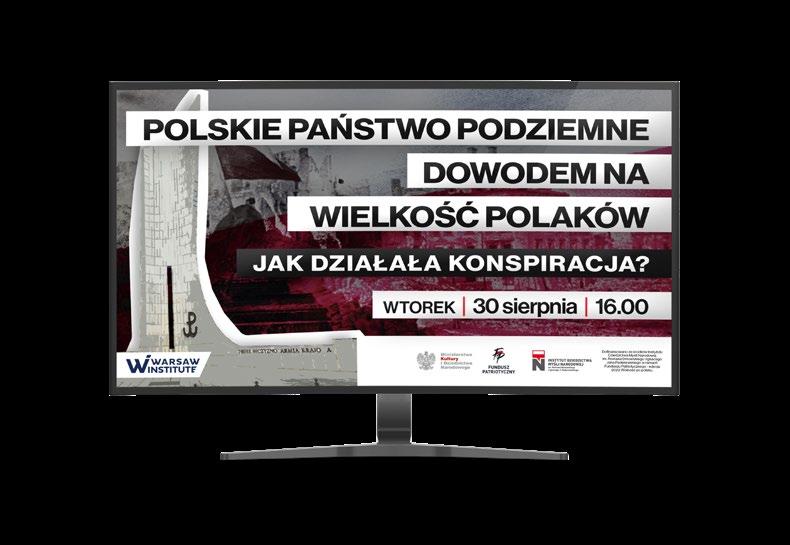
How quickly did these first structures of the un derground state begin to emerge? The experts pointed out that Poles have conspiratorial activities in their blood (Polish lands were under partition for 123 years), so these structures emerged quickly and operated very effectively.
The talk also focused on Władysław Sikorski’s transformation of the Union of Armed Struggle into the Home Army. This event took place on 14 Febru ary 1942. The transformation of the Union of Armed Struggle into the Home Army was intended to show that there was still fighting going on in the country and that diversionary activities against the occu pying forces were still being carried out. A small faction of the National Armed Forces remained outside the Home Army, which regarded the Soviet Union as Poland’s main enemy.
In the following part of the debate, we can le arn about the biggest action of the underground state, i.e. the Operation Tempest. The underground authorities wanted to make the Russians recognise the Polish government-in-exile and Poland’s eastern border from before 1939, and also sought to exclude the Republic of Poland from the Soviet sphere of influence..
The project was co-financed by the Roman Dmowski and Ignacy Jan Paderewski Institute for the Heritage of National Thought within the framework of the Patriotic Fund-edition 2022 „Wolność po polsku”, managed by the Ministry of Culture and National Heritage.


- 4 -
The Polish Underground State proves the greatness of the Polish people. How did the underground work?
Link to debate: https://www.youtube.com/watch?v=eQUPGFuo99Q
The Warsaw Uprising - the largest battle fought during World War II by an underground organisation against the occupying forces
The following took part in the debate on the War saw Uprising: Liliana Śmiech, Vice-President of the Warsaw Institute Foundation, Adrian Kolano , War saw Institute expert and Mariusz Patey, Warsaw Institute expert.
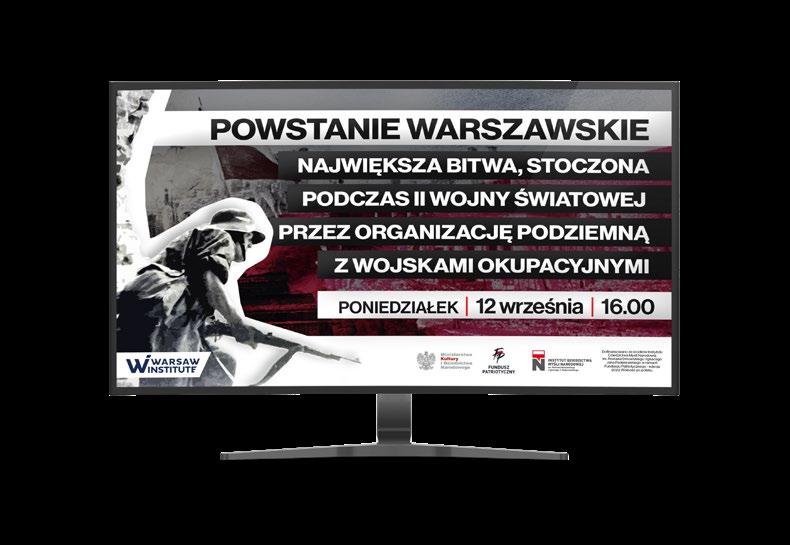
The Warsaw Uprising began on 1 August 1944 at 5 p.m., by order of Home Army Commander, General Tadeusz Komorowski „Bór”. The commander of the insurgent forces in Warsaw at the time was General Antoni Chruściel. The uprising was planned for no more than a few days and lasted as long as 63. The Warsaw Uprising fell on 3 October.

During the programme, participants in the di scussion exchanged their opinions on the Warsaw Uprising. The question was raised as to whether we can call the uprising a heroic struggle or a terrible defeat?
Although it ended in military defeat, the Uprising was of great political significance, as Poles demon strated their desire to restore and maintain their independence.
One of the speakers quoted the words of the late Witold Kieżun pseud. „Wypad”, explaining that the Warsaw Uprising was a necessity. In the context of these words, the interlocutors expressed their opi nion on whether the Uprising should have taken pla ce at all and whether it was a foregone conclusion.
The audience contributed by asking interesting questions, including assessments of the Warsaw Uprising in retrospect.
The subject of too much trust (perhaps naivety) of Polish commanders towards the Soviets was also raised.
At the end of the programme, participants in the discussion shared their opinions on what a contemporary young person can learn from the Warsaw Uprising..
The project was co-financed by the Roman Dmowski and Ignacy Jan Paderewski Institute for the Heritage of National Thought within the framework of the Patriotic Fund-edition 2022 „Wolność po polsku”, managed by the Ministry of Culture and National Heritage.

- 5 -
Link to debate: https://www.youtube.com/watch?v=eKm0ibQQxno
How to take care of Poland’s freedom and sovereignty in the 21st century?


The debate was attended by Liliana Śmiech, Vice-President of the Warsaw Institute Foundation, Adam Hlebowicz, Director of the Bureau of National Education - Institute of National Remembrance, and Dr Rafał Zgorzelski, historian.
During the programme, the experts exchan ged opinions on how to take care of freedom and sovereignty in the 21st century. The definition of the concept of sovereignty in the 21st century was explained. Several definitions were given; a sove reign is independent from another state, another power or institution; A sovereign state is a subject of international law. Experts were also asked about sovereignty in the context of the federalisation of the European Union and its potential implications.
The programme also answered questions on whether states can be completely sovereign and whether the fact that the European Parliament has increasing powers limits the sovereignty of member states. Participants in the discussion referred to the case of double quality products, suggesting a lack of equal treatment within EU structures. According to a study published by one of the European Union institutions, it was clear that there were considera ble differences in the quality of products in the co untries of the Community. Some countries received much better quality products than others.
The panel will also find out what the level of pa triotism is among schoolchildren, whether young Poles care about their homeland, and how we can foster patriotic attitudes among the youngest.
The project was co-financed by the Roman Dmowski and Ignacy Jan Paderewski Institute for the Heritage of National Thought within the framework of the Patriotic Fund-edition 2022 „Wolność po polsku”, managed by the Ministry of Culture and National Heritage.

- 6 -
Link to debate: https://www.youtube.com/watch?v=7Jg9cUhM4oI
Experts of the project









The project was co-financed by the Roman Dmowski and Ignacy Jan Paderewski Institute for the Heritage of National Thought within the framework of the Patriotic Fund-edition 2022 „Wolność po polsku”, managed by the Ministry of Culture and National Heritage.


- 7 -
Adam Hlebowicz
Jan Hernik
Marcin Paluch
Adrian Kolano
Kacper Kita
Mariusz Patey
Brunon Różycki
Liliana Śmiech
Rafał Zgorzelski
The project was co-financed by the Roman Dmowski and Ignacy Jan Paderewski Institute for the Heritage of National Thought within the framework of the Patriotic Fund-edition 2022 „Wolność po polsku”, managed by the Ministry of Culture and National Heritage.

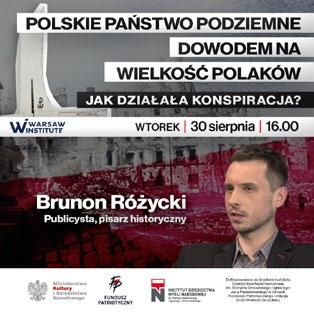
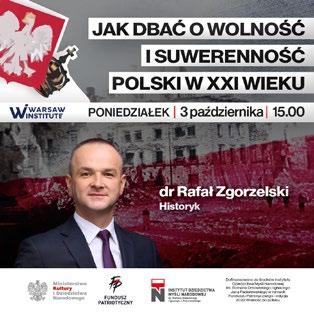


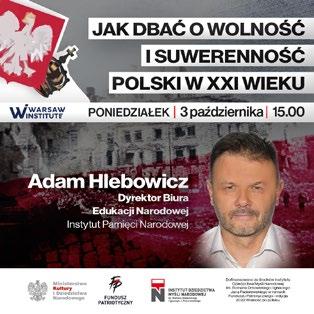

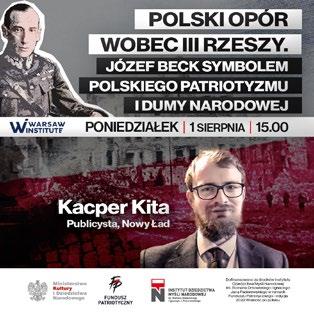


- 8 -
Stats
Polish resistance to the Third Reich. Józef Beck - a symbol of Polish patriotism and national pride?
| 12 k hits | 25,2 k views |
The Polish Underground State proves the greatness of the Polish people. How did the underground work?
| 14 k hits | 25 k views |
The Warsaw Uprising - the largest battle fought during World War II by an underground organisation against the occupying forces
| 11 k hits | 12,1 k views |
How to take care of Poland’s freedom and sovereignty in the 21st century?
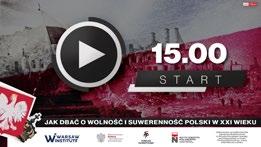


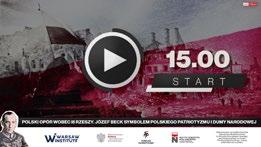

| 11 k hits | 19,6 k views |
The project was co-financed by the Roman Dmowski and Ignacy Jan Paderewski Institute for the Heritage of National Thought within the framework of the Patriotic Fund-edition 2022 „Wolność po polsku”, managed by the Ministry of Culture and National Heritage.

- 9 -
Articles published Jan Hernik
No. 303 Squadron: The Polish Heroes in the Battle of Britain
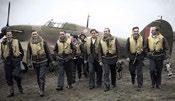
https://warsawinstitute.org/no-303-squadron-polish-heroes-battle-britain/
Defense of Westerplatte: The First Battle of World War II
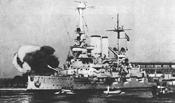
https://warsawinstitute.org/defense-westerplatte-first-battle-world-war-ii/
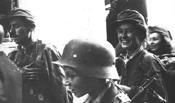



Mariusz Patey
More Than Home Army Soldiers: Various Concepts of Independence Struggle
After 1939 Defensive War. The Biographies of Irena Iłłakowiczowa and Klemen tyna Mańkowska pt.3
https://warsawinstitute.org/home-army-soldiers-various-concepts-independence -struggle-1939-defensive-war-biographies-irena-illakowiczowa-klementyna-mankowska-pt-3/
More Than Home Army Soldiers: Various Concepts of Independence Struggle
After 1939 Defensive War. The Biographies of Irena Iłłakowiczowa and Klemen tyna Mańkowska pt.2
https://warsawinstitute.org/home-army-soldiers-various-concepts-independence-struggle -1939-defensive-war-biographies-irena-illakowiczowa-klementyna-mankowska-pt-2/
More Than Home Army Soldiers: Various Concepts of Independence Struggle
After 1939 Defensive War. The Biographies of Irena Iłłakowiczowa and Klemen tyna Mańkowska pt.1
https://warsawinstitute.org/home-army-soldiers-various-concepts-independence-struggle -1939-defensive-war-biographies-irena-illakowiczowa-klementyna-mankowska-pt-1/
The project was co-financed by the Roman Dmowski and Ignacy Jan Paderewski Institute for the Heritage of National Thought within the framework of the Patriotic Fund-edition 2022 „Wolność po polsku”, managed by the Ministry of Culture and National Heritage.

- 10 -
Szymon Polewka
Tragedy of the Recovered Territories
https://warsawinstitute.org/tragedy-recovered-territories/
Cracow: The City That Survived
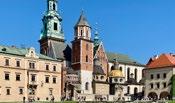

https://warsawinstitute.org/cracow-city-survived/

Kacper Kita
The Drama of the General
https://warsawinstitute.org/the-drama-of-the-general/
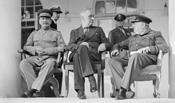
Lost race with the communists
https://warsawinstitute.org/lost-race-communists/
Maciej Bujalski
Nazi persecution of the Catholic Church in Poland
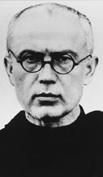
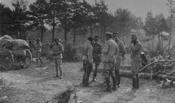
https://warsawinstitute.org/nazi-persecution-catholic-church-poland/
Bureau of Information and Propaganda: Non-Military Wing of Poland’s Home Army

https://warsawinstitute.org/bureau-information-propaganda-non-military-wing-polands-homearmy/
The project was co-financed by the Roman Dmowski and Ignacy Jan Paderewski Institute for the Heritage of National Thought within the framework of the Patriotic Fund-edition 2022 „Wolność po polsku”, managed by the Ministry of Culture and National Heritage.

- 11 -
Dawid Krupa
Józef Unrug – An Adamant Admiral
https://warsawinstitute.org/jozef-unrug-adamant-admiral/
Żegota Council to Aid Jews: How Poland Helped the Jews
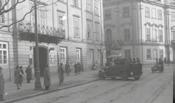



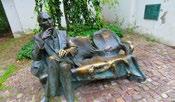
https://warsawinstitute.org/zegota-council-aid-jews-poland-helped-jews/
Stefan “Grot” Rowecki: A Betrayed General
https://warsawinstitute.org/stefan-grot-rowecki-betrayed-general/
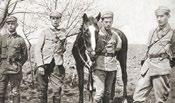
Jan Karski: Emissary of the Free World
https://warsawinstitute.org/jan-karski-emissary-free-world/
Adrian Kolano
Operation Kutschera
https://warsawinstitute.org/operation-kutschera/
A Greek Tragedy of the Warsaw Uprising
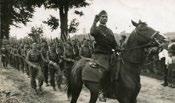
https://warsawinstitute.org/greek-tragedy-warsaw-uprising/

Home Army Liquidation Operations
https://warsawinstitute.org/home-army-liquidation-operations/
The project was co-financed by the Roman Dmowski and Ignacy Jan Paderewski Institute for the Heritage of National Thought within the framework of the Patriotic Fund-edition 2022 „Wolność po polsku”, managed by the Ministry of Culture and National Heritage.

- 12 -
The Indomitable: Colonel Łukasz Ciepliński’s Fight for Poland’s Freedom pt. 2
https://warsawinstitute.org/indomitable-colonel-lukasz-cieplinskis-fight-polands-freedom-pt-2/
The Indomitable: Colonel Łukasz Ciepliński’s Fight for Poland’s Freedom pt.1
https://warsawinstitute.org/indomitable-colonel-lukasz-cieplinskis-fight-polands-freedom/
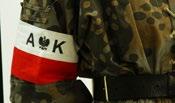
The project was co-financed by the Roman Dmowski and Ignacy Jan Paderewski Institute for the Heritage of National Thought within the framework of the Patriotic Fund-edition 2022 „Wolność po polsku”, managed by the Ministry of Culture and National Heritage.
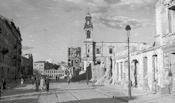


- 13 -

 The project was co-financed by the Roman Dmowski and Ignacy Jan Paderewski Institute for the Heritage of National Thought within the framework of the Patriotic Fund-edition 2022 „Wolność po polsku”, managed by the Ministry of Culture and National Heritage.
The project was co-financed by the Roman Dmowski and Ignacy Jan Paderewski Institute for the Heritage of National Thought within the framework of the Patriotic Fund-edition 2022 „Wolność po polsku”, managed by the Ministry of Culture and National Heritage.

 The project was co-financed by the Roman Dmowski and Ignacy Jan Paderewski Institute for the Heritage of National Thought within the framework of the Patriotic Fund-edition 2022 „Wolność po polsku”, managed by the Ministry of Culture and National Heritage.
The project was co-financed by the Roman Dmowski and Ignacy Jan Paderewski Institute for the Heritage of National Thought within the framework of the Patriotic Fund-edition 2022 „Wolność po polsku”, managed by the Ministry of Culture and National Heritage.














































